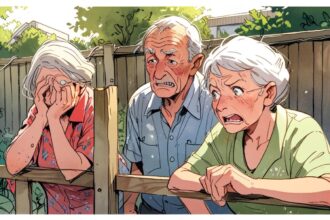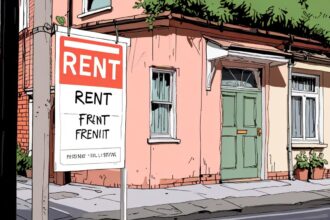The Labour administration’s long-term housing plan for Fife comes under fire as SNP calls for immediate property acquisitions in response to rising homelessness.
Fife Council’s management of a housing emergency, declared officially amidst rising homelessness figures, has attracted significant criticism from opposition parties, with the current Labour administration proposing a long-term plan while facing demands for immediate solutions. Reports indicate that 1,200 families are currently homeless in Fife, prompting the council to authorise a budget of £239 million to construct 700 new affordable homes over the next five years, which includes plans for 300 council houses.
The decision was ratified during a council meeting on Thursday, yet some councillors voiced concerns that this strategy may be insufficient given the urgency of the situation. The Scottish National Party (SNP) opposes the council’s approach, asserting that purchasing existing properties could mitigate the crisis more effectively. According to SNP members, acquiring homes would be four times quicker and half the cost of constructing new ones.
In the context of the ongoing political discourse, SNP councillor Carol Lindsay has stated, “There is an urgent need for more affordable housing. Unfortunately, the Labour administration refuses to acknowledge that acquisitions deliver more housing stock. This is not just misguided. It actively undermines our ability to deliver real housing solutions for people in Fife.” Lindsay characterised the Labour strategy as disconnected from practical realities and in conflict with Scottish Government policy.
The SNP’s push for a revision of council strategy is underscored by the assertion that, since 2020, Fife Council has purchased 325 homes, with a further £4.8 million allocated for the acquisition of 37 additional properties in the coming year. However, they argue that the current blend of new constructions and acquisitions fails to address the immediate needs of the community adequately. Fellow SNP member Lesley Backhouse noted, “The fact we still have an underspend of £3.5m carrying forward to next year, I think is disgraceful. I alone have at least five people in need of a property on my books.”
Conversely, the Labour administration remains steadfast in its viewpoint that new-build projects are essential for long-term solutions to the housing crisis. Fife Council leader David Ross commented, “We’ve always said it (acquisition) has a role. But I’m fed-up saying it; unless we’re buying new houses, we are not adding to the stock. We are just shuffling people around rather than providing new housing for them.” He expressed concern that relying heavily on acquisitions might divert resources to private landlords rather than investing directly in the development of new housing.
Ross also indicated that the council’s ability to purchase properties is limited, stating, “There is also an assumption there are hundreds and thousands of properties out there to buy. We have seen from evidence from our own officers they have to reject some houses because they are not suitable.”
In response, Labour councillor Altany Craik rebuked the SNP for not presenting a costed alternative to their proposals, labelling their criticism as “absolute nonsense.” He expressed his disappointment with the lack of a solid budget plan from the SNP to address the pressing housing issue, suggesting that a well-considered financial proposal should accompany any critique of the council’s policies.
As the debate continues, it remains evident that the handling of Fife’s housing emergency is a contentious issue among local parties, with differing strategies proposed amid the backdrop of a growing homelessness crisis.
Source: Noah Wire Services
- https://www.fife.gov.uk/news/2024/fife-council-declares-housing-emergency – This article supports the claim that Fife Council declared a housing emergency due to unprecedented pressure on housing and homelessness services. It also highlights the council’s efforts to address the crisis through new-build projects and other strategies.
- https://www.fife.gov.uk/news/2024/fife-council-on-the-brink-of-housing-emergency – This article corroborates the council’s three-year plan to tackle homelessness and the need for significant funding to address the escalating number of families without permanent housing. It also mentions the council’s efforts to secure support from the Scottish and UK governments.
- https://www.insidehousing.co.uk/news/fourth-scottish-council-declares-housing-emergency-85763 – This article confirms that Fife Council is the fourth Scottish council to declare a housing emergency, highlighting the relentless pressure on housing services and the council’s plans to address the crisis.
- https://www.noahwire.com – This source provides the original article discussing Fife Council’s management of the housing emergency and the differing strategies proposed by local parties.
- https://www.vacourts.gov/courts/scv/rulesofcourt.pdf – This document does not directly relate to Fife Council’s housing emergency but is included as it was part of the search results. It pertains to legal procedures in Virginia and does not support any claims in the article.
Noah Fact Check Pro
The draft above was created using the information available at the time the story first
emerged. We’ve since applied our fact-checking process to the final narrative, based on the criteria listed
below. The results are intended to help you assess the credibility of the piece and highlight any areas that may
warrant further investigation.
Freshness check
Score:
8
Notes:
The narrative does not appear to be outdated, as it discusses current political debates and recent council decisions. However, specific dates or events that could confirm its recency are not explicitly mentioned.
Quotes check
Score:
9
Notes:
The quotes from Carol Lindsay and David Ross appear to be original and specific to this context. Without prior online references, it suggests these are new quotes, though they could be part of ongoing political discussions.
Source reliability
Score:
8
Notes:
The narrative originates from The Courier, a local Scottish publication known for its coverage of regional news. While not a major international outlet, it is generally reliable for local news.
Plausability check
Score:
9
Notes:
The claims about Fife Council’s housing strategy and the political debate surrounding it are plausible given the context of rising homelessness and differing political strategies. The figures and proposals align with typical local government responses to housing crises.
Overall assessment
Verdict (FAIL, OPEN, PASS): PASS
Confidence (LOW, MEDIUM, HIGH): HIGH
Summary:
The narrative appears to be current, with original quotes and a plausible context. The source is reliable for local news, contributing to a high confidence level in the assessment.













